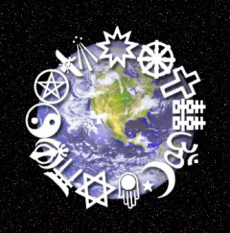
Email: nadege.preston@hotmail.com
Total Article : 82
About Me:Hi I’m Nadege and I study French at the University of Leeds, and I have just completed my third year abroad in Montpellier studying literature and enjoying the sunshine! I love art; painting and being creative, as well as photography and baking. Travelling is my favourite hobby at the moment; experiencing the French language and culture. I hope you enjoy reading some of my articles!

Mirza found that the increase in religiosity amongst Muslims was due to the decline of political parties in Britain, which meant Muslims were finding other ways of gaining identity such as going to Mosques. Also, multi-cultural policies mean Muslims are demanding more faith schools, laws against blasphemy and permission to wear tradition Islamic dress at work. These factors show how ethnic minorities feel excluded from society and that they want Britain to gain some of their values in order to create more social harmony and fewer divisions.
The functionalist perspective of religion argues that religion provides social harmony and a value consensus. Durkheim, a functionalist, describes religion as ‘a unified set of beliefs and practices relative to sacred things’. This means that religion unites people, creating social solidarity and sacred things such as the Bible create a moral community. According to Functionalists, religion acts as moral glue; keeping society together and promoting stability and shared values. Consequently, harmony and consensus are created as people unite, forming a community and share the same values.
It can be argued that the earliest religions simply caused harmony and consensus rather than conflict. This is because with Totemism, created by the aboriginals, ceremonies and rituals acted as social glue, meaning the sacred totems binded people together. People developed a shared identity and a collective conscience causing harmony. Durkheim stated that religions like these help to mould societies together. However, Durkheim states that nowadays the supernatural element is lost and so ‘civil religion’ is created. This can be related to football teams for example, as people find their team important and idolise them whilst creating a consensus and having shared values which cause harmony.
Fundamentalists, although cause conflict with society, do maintain their traditional values and resist change. They are a conservative force who maintain the status quo and go against the capitalist ideology. Therefore, they maintain harmony and consensus within their religion as they do not change their beliefs.
It is therefore evident that religion can bring harmony and consensus to society, although this may have been more present in earlier religions. Religion nowadays can cause many divisions due the multicultural society we live in causing conflicts between norms and values, resulting in wars or terrorist attacks. These have and still are causing great divides within society, between ethnicities and between religions. It could be argued that within a certain religion, harmony and a consensus is created, but when looking at society on the whole, religion can cause conflict and divisions.
IMAGE URL
http://languagelog.ldc.upenn.edu/~bgzimmer/religions.jpg

0 Comment:
Be the first one to comment on this article.